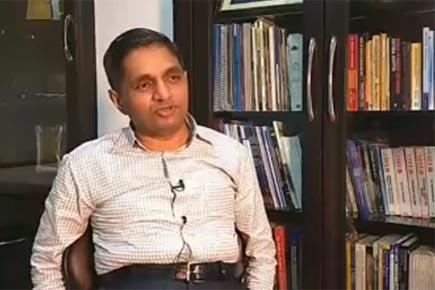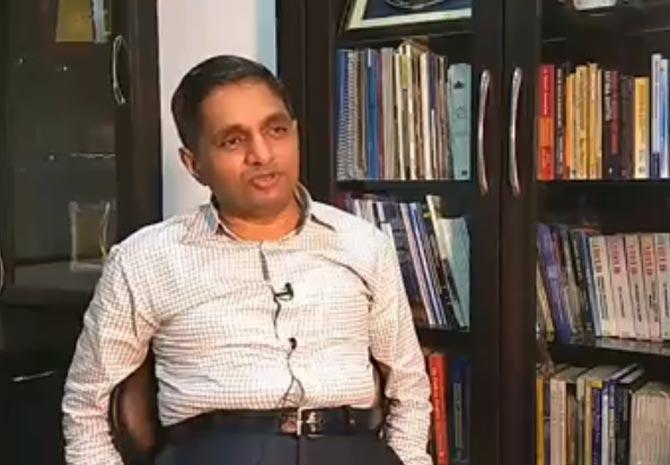There has been a sudden spike in the number of teenage suicides in the country. mid-day interacted with renowned Mumbai based psychiatrist Dr. Harish Shetty to find out the causes and steps to tackle the problem


Psychiatrist Dr. Harish Shetty
Teenage suicide cases are on the rise in India. Recently, a deadly internet game called the Blue Whale Game run by a social media group is said to have pushed a 14-year-old Mumbai boy to commit suicide. mid-day interacted with a renowned psychiatrist and a member of Indian Medical Association (IMA) and Indian Psychiatric Society, Dr Harish Shetty to find out the causes of depression and reasons behind the rise of suicide cases amongst youngsters. Dr. Shetty has not only pointed out the signs of depression but also mentioned ways to handle it and prevent suicide cases amongst children. According to him, strong family bonding and good parenting can bring down the number of suicide cases amongst children in India.
ADVERTISEMENT
Excerpts from the interview:
Why do teenagers commit suicide?
I feel that children do not spend quality time in outdoor activities and connecting with friends, which lead to unhealthy lifestyle and emotional stress. In recent times, many children have working parents who cannot give ample time to their little ones. Spending quality time with children is a pre-requisite for their well-being. Because of the rapid pace of life, 'disconnection syndrome' in Indians has increased. When stress increases and is not taken care of, it can lead to depression. The number of depression cases amongst children has increased. Strangely, the age of the onset of depression has decreased and so have the ages of sexual violence, drug abuse, suicidal tendencies, sexual intercourse, etc. Youngsters nowadays face a lot of pain and agony, which abets suicide.
We believe that societal system is quite strong in India. Then what makes youngsters in India commit suicide?
In the USA, there is less educational pressure and the country usually does not register cases of school children committing suicide. The educational system in the USA is easy as compared to ours. In India, the aspiration level of parents is high. Also, family bonding is decreasing in India. Now, there are smaller families, matchbox apartments, and fewer open areas for children to play. In the USA, every child is involved in at least one extra-curricular activity along with academics. There are Corporate Social Responsibility (CSR) activities for children in international schools, which start at an early age. American and European children lead balanced and stress-free lives. In contrary, children in India spend maximum time in schools and tuition classes and get a little time for recreational activities. All these lead to stress and depression.
What are the warning signs of depression that parents and teachers should keep an eye out for?
Schools and parents are like joint families and it is important for the both the institutions to work together. Some of the warning signs of depression are insomnia, turning aloof, staying confined to a room, laziness, irritation, bunking school, lack of concentration, feeling of hopelessness, talking about death and dying, talking about harming others, and getting angry over minor issues. If one any of these signs are noticed, parents should take the child to a neighbourhood counsellor or a psychiatrist rather than an astrologer. An informal counselling should be avoided and a mental professional should screen the child at an early stage.
As we are aware of the Blue Whale game, a dangerous game that has circulated through social media, can we say that social media and internet addiction are causes for the rise of suicides amongst children?
Internet addiction is a major issue. Generally, children who find difficulty in communicating with parents and teachers slowly push themselves towards social media. They feel happy to spend more time on social media because they keep themselves engaged in games and by talking to friends/strangers over Facebook. Families and schools should work together to reduce social media addiction amongst children. Gadget hygiene is a very important issue in today’s time. Children should be allowed to play with gadgets in front of family members rather than in privacy. Also, parents should ensure that children spend less time on mobiles and video games. Similarly, parents should also follow proper gadget hygiene. It's good if they do not use mobiles while eating and do not keep themselves engaged on WhatsApp when children are about to sleep. A phone should never be gifted, but given! If parents, teachers or close family members cannot treat gadget addiction, then they should consult a counsellor to treat the same. Internet addiction is as bad as drug addiction!
How can a teenager seek help or say no if you are stuck in a dangerous game like the Blue Whale Game? What tips can you give them?
If a child feels that he or she is stuck in such games, then he/she should immediately report it to parents or teachers. Parents should not scold or beat up the child, rather say that this is a problem that can be resolved. If a close friend knows about the situation, then he should not stay silent, but report it to the teacher or parents. There is a conspiracy of silence in schools, which needs to be broken. Breaking the conspiracy of silence in schools and families will automatically help the child in distress. When children share their lives, they will share their personal problems quickly rather than only asking questions about maths or history.
 Subscribe today by clicking the link and stay updated with the latest news!" Click here!
Subscribe today by clicking the link and stay updated with the latest news!" Click here!






